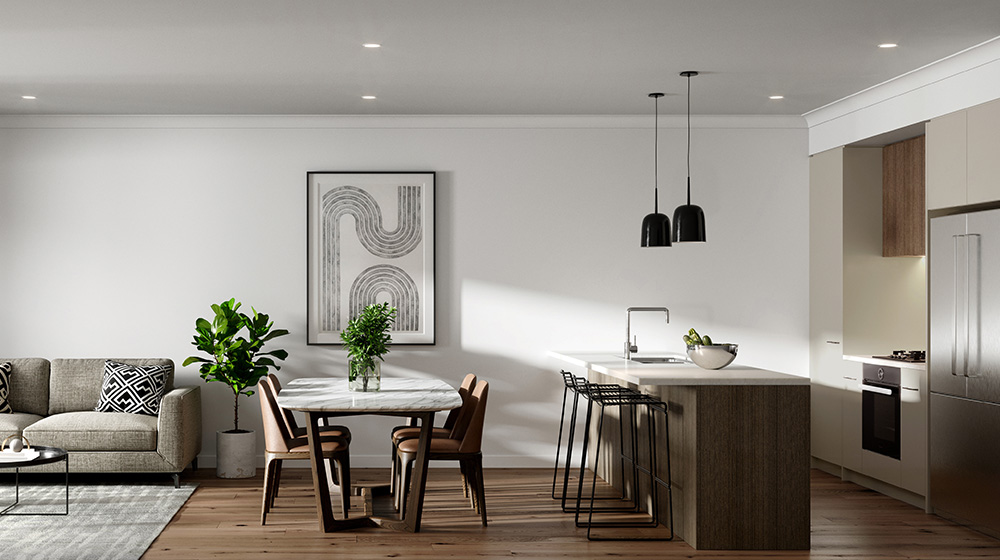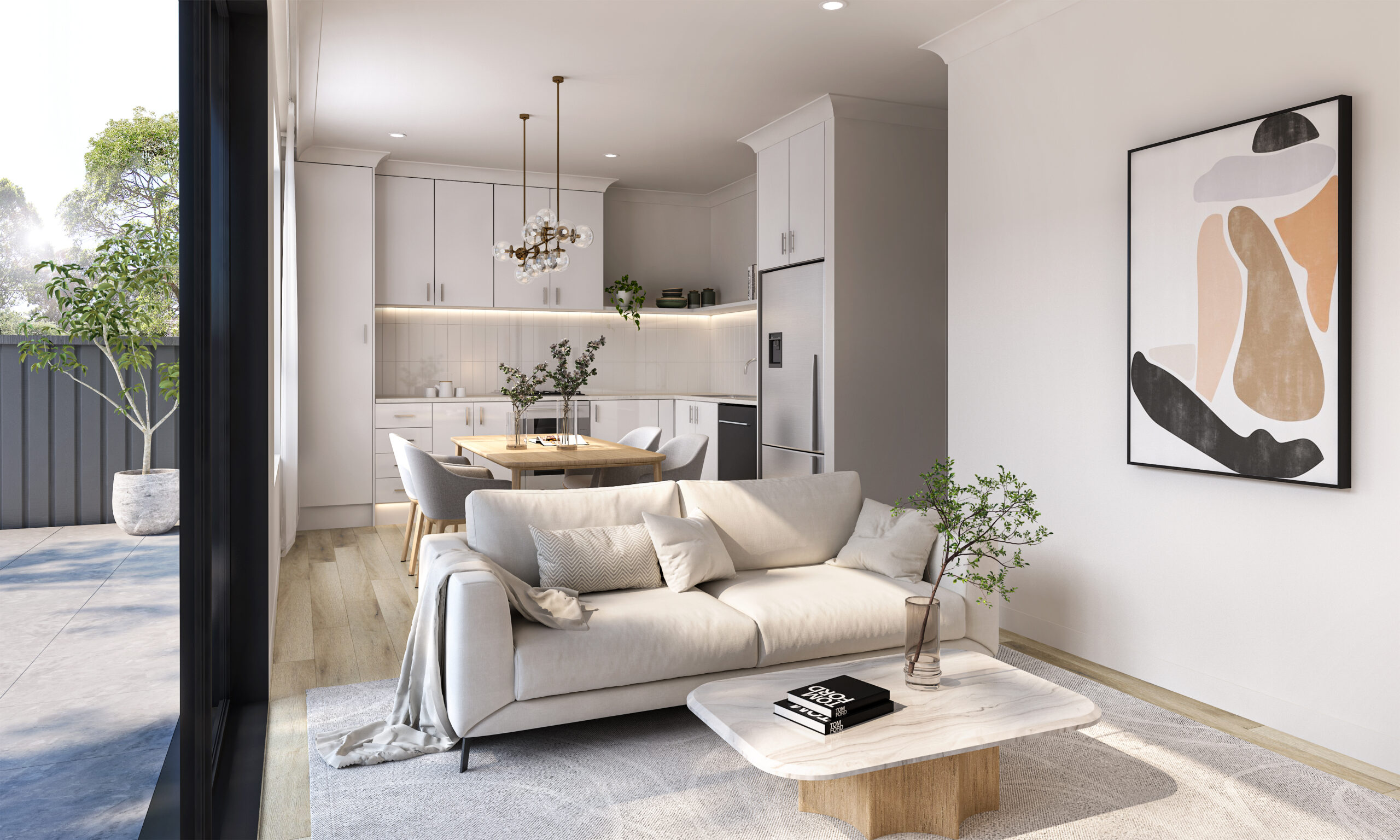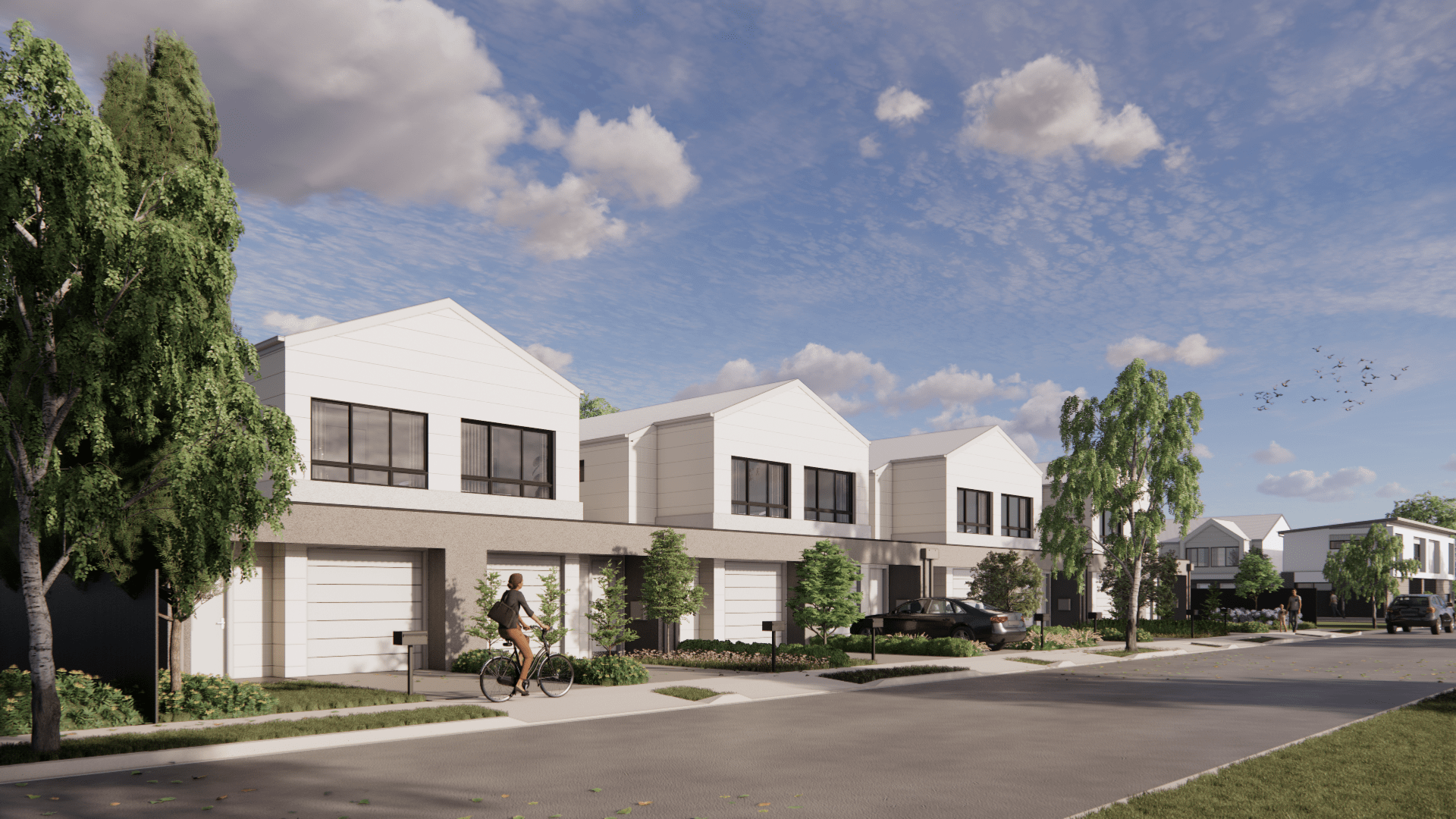Top Tips
Essential tips for South Australian Home Buyers
Thanks to Home Seeker SA, they’re making it easier for South Australians to buy their own home.
Here is a few helpful tips to help you better understand the home buying process in South Australia, and ensure you’re ready to buy when you find a property you love by Bradford Projects.
ELIGIBILITY
To find out if you are eligible to buy a home through HomeSeeker SA you need to answer ‘yes’ to the following statements:
- I am an Australian citizen or hold permanent residency in Australia and am 18 years or older.
- My annual household income is less than $130,000 before tax for couples and families, or $100,000 before tax for singles. (Lower income thresholds apply for regional South Australia.)
- The value of my assets is less than $643,500 for couples or families, or $504,500 for
singles. - I do not currently own any residential property, including overseas or in regional Australia.
- If I do currently own a residential property I have a binding contract for the sale of that property in place.
- I will live in my new home bought through HomeSeeker SA for a continuous period of no less than 6 months following property settlement.
- I have saved enough money for a deposit and upfront fees and charges to buy a home.
- I have obtained finance pre-approval from a bank or financial institution.

UNDERSTANDING DEPOSITS AND UPFRONT COSTS WHEN PURCHASING A HOME
What sets Bradford Projects apart is our dedication to a fixed-price contract, requiring a $2,000* deposit, with no additional payments until completion.
With as little as $3,000* deposit, and nothing further to pay until your home is handed over, giving you the financial freedom while your home is being built.
The following information is an overall guide to understanding deposits when purchasing a home.
Deposit:
- A deposit is the initial payment, usually a percentage of the total home price, made to the seller (vendor) to secure the purchase of your home.
- Many financial institutions, like banks and credit unions, offer low deposit loans. However, to avoid paying lenders mortgage insurance (LMI), most institutions require a 20% deposit.
- Deposit requirements vary between lenders, with some allowing purchases with as little as a 3% deposit.
- A larger deposit demonstrates to lenders that you are a responsible saver, increasing your chances of loan approval
Open Market Deposit:
When buying on the open market, a 10% deposit is typically required for the seller, unless otherwise specified in the contract. This may differ from the deposit required by the lender.
Additional Upfront Costs:
- In addition to the deposit, you will need funds to cover other upfront expenses when buying a home.
These costs include stamp duty, as well as various fees and charges associated with the purchase. See the next section regarding recent news on the state budgets announcement on stamp duty. It’s important to consider both the deposit requirements and upfront costs when planning for the purchase of your new home.
STAMP DUTY
Exciting news for first home buyers! The 2023-24 State Budget brings positive changes for those looking to purchase a new home:
Stamp Duty Abolishment:
As part of the latest budget, stamp duty is abolished for first home buyers who purchase a new home. The exemption applies to homes valued up to $650,000 or vacant land valued up to $400,000 for building a new home.
Imagine purchasing a property valued at $650,000. With the stamp duty abolishment, you can save a whopping $29,850 in stamp duty fees!
Take Advantage of the Opportunity:
This stamp duty relief provides an excellent opportunity for first home buyers to enter the housing market and make significant savings. It’s an ideal time to explore your options and consider purchasing a new home that fits within the specified value range. Don’t miss out on this fantastic opportunity to save on stamp duty while making your dream of homeownership a reality. Act now and take advantage of the budget changes for first home buyers in South Australia.

WHAT IS SHARED EQUITY?
‘Shared equity’ can cover the gap between what you can afford and the cost of a property, so you can boost your borrowing power and buy your own home sooner. For example, with shared equity you may only need to make repayments on 75 per cent of the loan, with the remainder being held by a lender.
HOW DOES SHARED EQUITY MAKE BUYING A HOME MORE AFFORDABLE?
Shared equity has a significant impact on affordability because homebuyers only needed to afford repayments on the portion of a home’s purchase price not covered by shared equity, typically 75 per cent (but it can be a higher or lower percentage).
Rising rents, interest rates and house prices, coupled with growing cost of living pressures, mean that more South Australians are stuck in a cycle of paying much higher rents, while not being able to move into home ownership.
The wider benefit of getting more South Australians into home ownership through schemes like shared equity can pull more South Australians out of renting and into their own home, freeing up more rental properties which are in high demand.
Shared equity is unlocking home ownership for many renters, often without paying any more in loan repayments than they were paying in rent.
HOW DOES IT WORK?
At the South Australian Government’s housing financing company, HomeStart Finance, the Shared Equity Option allows people to partner with HomeStart to get into the housing market, with HomeStart contributing up to 25% of the purchase price.
Repayments are based on borrowings for the remaining 75% of the purchase price and not the shared equity component.
HomeStart acts as a silent partner which will share in the profit or loss when the house is sold.

MEETING WITH A LOAN CONSULTANT OR MORTGAGE BROKER
Here are the recommended steps to connect with a mortgage broker or bank to assist you with your home loan needs:
Mortgage Broker:
- Connect with a reputable mortgage broker who offers access to a wide range of home loans. Discuss your goals and financial situation with the broker.
- Receive personalised loan options tailored to your circumstances.
- Understand the features, fees, and interest rates of each loan option.
- Apply for a loan and receive guidance throughout the purchase process.
Bank:
- Choose your preferred bank for your home loan.
- Get in touch with a bank loan consultant.
- Discuss your requirements and goals with the consultant.
- Receive guidance on loan options that suit your situation.
- Understand the loan features, fees, and interest rates.
- Apply for a loan and have assistance throughout the purchase process.
Both mortgage brokers and banks are available to help you with your home loan journey. Select the option that aligns with your preferences and needs.
Remember: you don’t have to accept the first loan you’re offered. Ask to see loans from other lenders so you can compare. A small difference in interest will add up to a large amount over time, and if you can get a lower interest rate from another lender, you could save thousands of dollars. If you are unhappy with any option, ask the broker to find an alternative.
GETTING FINANCE PRE-APPROVAL
Get finance pre-approval from a lender to show you’re able and ready to borrow the amount you need to buy your chosen home. Pre-approval lasts for 3–6 months and shows you’re eligible to apply for a loan up to a certain amount. Being able to tell a real estate agent that you have your finance pre-approved lets them know that you are serious about buying.
